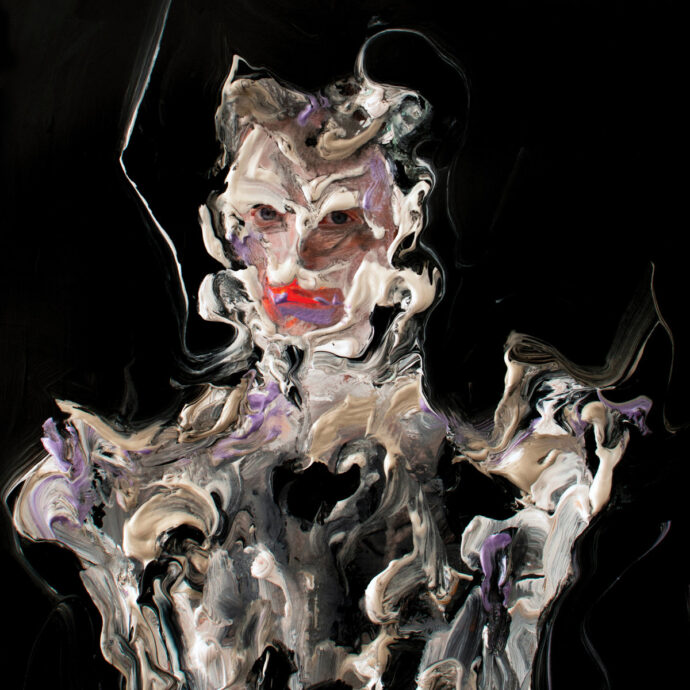Mike Hadreas has undergone a series of significant changes since beginning to make music under the Perfume Genius name in 2008. He went from the intimate piano and synth-led sound of Learning and Put Your Back N 2 It, to exploring more expansive rock and baroque influences enhanced by co-producer Adrian Utley on 2013’s Too Bright. That sound was capitalized and built upon when Hadreas brought on Grammy-nominated producer Blake Mills for No Shape and Set My Heart on Fire Immediately.
Ugly Season is another tectonic shift in the Perfume Genius sound. It was adapted from his 2019 collaborative dance piece/composition with Kate Wallich, titled The Sun Still Burns Here, and inhabits sonic spaces more readily associated with neoclassical darkwave, industrial, and jazz than any strain of pop music. Mills’s return to production undoubtedly played a role in emboldening the record’s stylistic aberration, as it mirrors a similar trend in his own work.
Take the example of the record’s penultimate track “Hellbent,” which opens with a minute-and-a-half passage of warbling synthesizers topped by a blown-out horn solo resembling a tekiah gedolah. Hadreas then belts out a verse about the darker side of his relationship with Jason, a closeted gay man to whom a song on Immediately was dedicated. “Hellbent, phoneless Belligerent, Aquarius,” Hadreaus wails during the chorus, over an increasingly sputtering drumbeat that brings the song to a finish.
“No pattern / No bloom / Where I’m taking you,” Hadreas tells listeners on the album’s opener, “Flat and static / Just a room.” This is the project’s first glimmer of irony, as Ugly Season is anything but static. Some more mellow moments are present on the record in the form of the instrumental tracks “Scherzo” and “Cenote,” the latter being the album’s closer. Both songs are piano interludes, though they do present telling markers of the record’s emotional progression.
The project’s third component, a short film titled Pygmalion’s Ugly Season, accentuates this progression by giving it a face. “I wanted this thing to be something that can live in different places,” Haedrus told Billboard when asked about the breadth of his vision for the project.
Homages to the more avant-garde tendencies of filmmakers like David Lynch can be found in Ugly Season’s visual component (think Inland Empire and the third season of Twin Peaks), with the inclusion of hammy CGI and largely symbolic imagery. This comes as no surprise, given Hadreas’s longtime admiration for the groundbreaking director/musician.
“Pop Song” and “Eye in the Wall,” were both released as singles to promote Hadreas’s 2019 performances of The Sun, and serve as a few of the more accessible cuts on the record. The first is a luscious, sauntering ballad that wouldn’t sound out of place on a previous Perfume Genius release, while the second single is a percussive tune that builds into an extended, freakish jam, sounding like what one might expect to hear soundtracking a ritual dance at a peyote ceremony. Polka is another of Hadreas’s disparate influences on the record, showing up on Ugly Season’s title track, where he straddles a snaking two-step beat, singing “Bitch, it’s ugly season / And I love it.”
In this statement, the album’s true ethos is revealed. Hadreas’s intention was to create something visceral and gruesome, with the capacity to simultaneously be full of passionate beauty. Ugly Season is a daring pursuit of that paradox. While the record may not be the most approachable for the average listener, it will certainly go down as one of the most unique and forward-thinking art pop projects of the past few years.
Rating: 7.8/10

